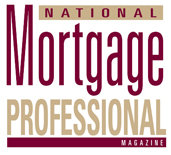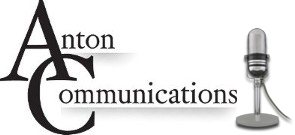
Broker to Banker:
The Advantages to Mortgage Brokers
By David Hardin
Director of
Retail Operations
Bay Equity Home Loans
Change. Few words in the English language evoke such equal and opposite feelings—of both dread and excitement. Rapid and relentless, everyday change is precisely what mortgage brokers face, and I’m not referring to mortgage rates. For the past two years, waves of federal legislation and regulation have been transforming and changing the home financing and lending landscape. Any mortgage broker still in business must consider a fundamental change: Should they remain a broker or join a banker?
This is no small change. We cannot do much about new rules, programs and guidelines—they represent the hand we are dealt. Having been dealt such a hand, many of our colleagues have abandoned their vocation mid-career, choosing to change industries or perhaps take the initiative to start a new venture. But there is another option: We can adapt our business to survive and thrive in this new world.
The reason these regulations have failed is simple: Faulty aim. They’ve been applied to the industry and the businesses that make up the industry and not to the real problem: Bad mortgage products, such as sub-prime and stated-income loans.
Perhaps the most significant negative, at least in terms of compensation and earning potential for mortgage brokers, is that, under the new rules, mortgage broker businesses can no longer be paid by both the lender and the borrower in a loan transaction. They must choose.
As a result of these and other changes, mortgage brokers are increasingly—not yet in droves but certainly in bunches—electing to join mortgage banking operations as employees and run their branches as profit centers of the bank. In addition to allowing one to remain in a business they probably love, doing so has many advantages.
When you broker a loan, there is a preset margin that you must earn, and in many cases, you cannot legitimately credit the client as much as you might like. In some cases this may make the loan undoable for the client or may result in you losing the loan to a competitor with a lower margin. When you become a bank branch you sell off of a rate sheet that allows greater flexibility when it comes to how much credit you can give the client towards costs.
Segueing from broker to banker has several inherent positives. For instance, the GFE (Good Faith Estimate) disclosure is cleaner and less confusing to the client. You disclose only what the client is actually being charged and you do not have to show a charge and then show a credit. It makes the closing less confusing and is a much easier sell.
Your process also becomes greatly simplified. You no longer have to worry about the submission requirements for multiple lenders. This is an area that is often overlooked, but a simplified process translates to better customer service and the ability to close loans faster and with greater accuracy.
When you team up with the right mortgage bank, you become part of an organization with the resources in place to ensure you remain in compliance with new laws and the never-ending changes in programs and compliance issues. Most mortgage banks provide accounting, human resources and other administrative support that most small business can only hope for. You become part of a larger entity that generally has resources to help you grow your business, such as marketing programs, collateral and greater access to technology and legal sources to help you create business arrangements with your target clients that can prove to be very profitable.
The resistance of many brokers to convert their employees to a W-2 status has proven costly and if it hasn’t invoked an audit by the state yet, it certainly is a risky way to continue to do business. The payroll services that most mortgage banks provide is the first step in ensuring you are doing things properly.
Many mortgage banks now offer the ability to broker loans to fill the gaps in product that their banking products may have that your clients need. This can be extremely important when, as a broker, your clients are accustomed to you having a wide array of products available.
So how do you decide if a conversion from broker to banker is right for you? First and foremost, you have to assess the needs and goals of your business. What are its most important needs? You also need to know if your company has the wherewithal to compete and remain in compliance. Finally, consider how you would rather spend your time: growing your business or administering your business?
The decision to change from broker to banker should not be taken lightly—it could be the single most important decision a broker makes in his or her career. In January 2010, I took a mortgage brokerage operation that had been independent for since its inception in 2004 and transformed it to a mortgage bank with a growing banking firm. The transition was motivated by changes in the licensing laws and in the RESPA changes. The transition allowed my firm to remain in strict compliance and become a more efficient, profitable business, fully prepared to deal with the constant changes over the past 20 months. It is not without hard work, but like most things where hard work is required it had great rewards.
If and when you decide to pull the trigger and switch from broker to banker, here are a few of the things you should look for:
- Is the management team one I see myself working with on a daily basis?
- How are their rates on the key products I sell?
- What is the breadth of product offering?
- What level of accounting, compliance, human resources, payroll and marketing support do they offer?
- What is the financial structure?
- Am I ready for a change?
David Hardin is director of retail operations for Bay Equity Homes Loans, one of the San Francisco area’s most respected and successful mortgage lending institutions. David is in charge of expanding the bank’s team of retail branches across the Western United States by encouraging mortgage brokers to transition into the mortgage financing industry. He can be reached at (415) 820-4512 or (949) 701-0804, or e-mail dhardin@bayeq.com.


